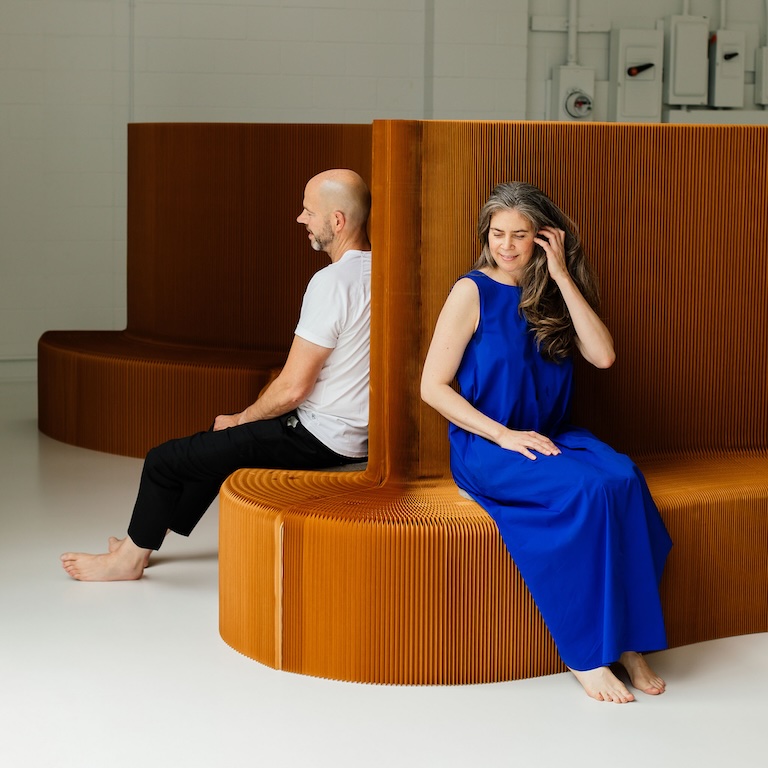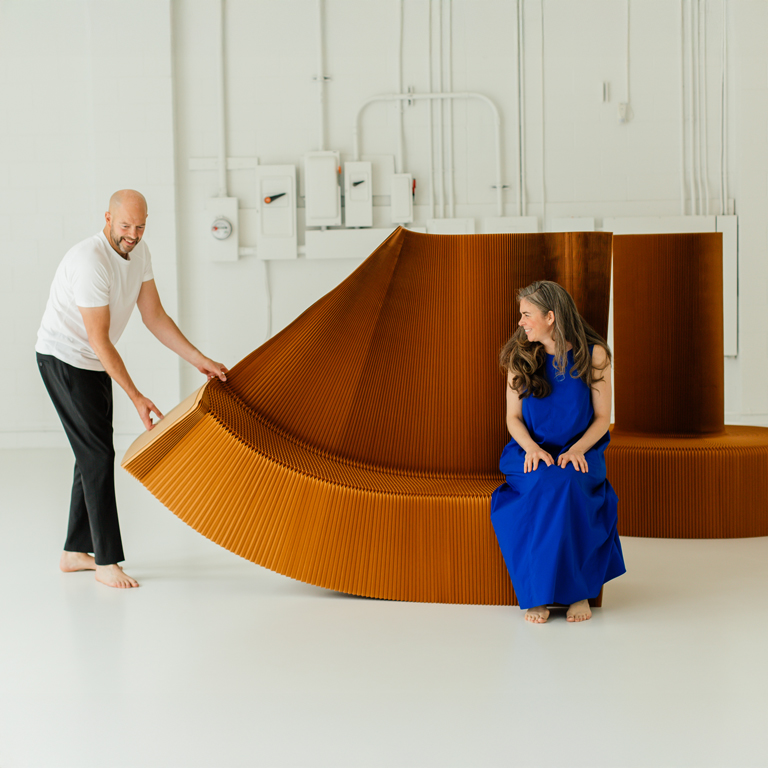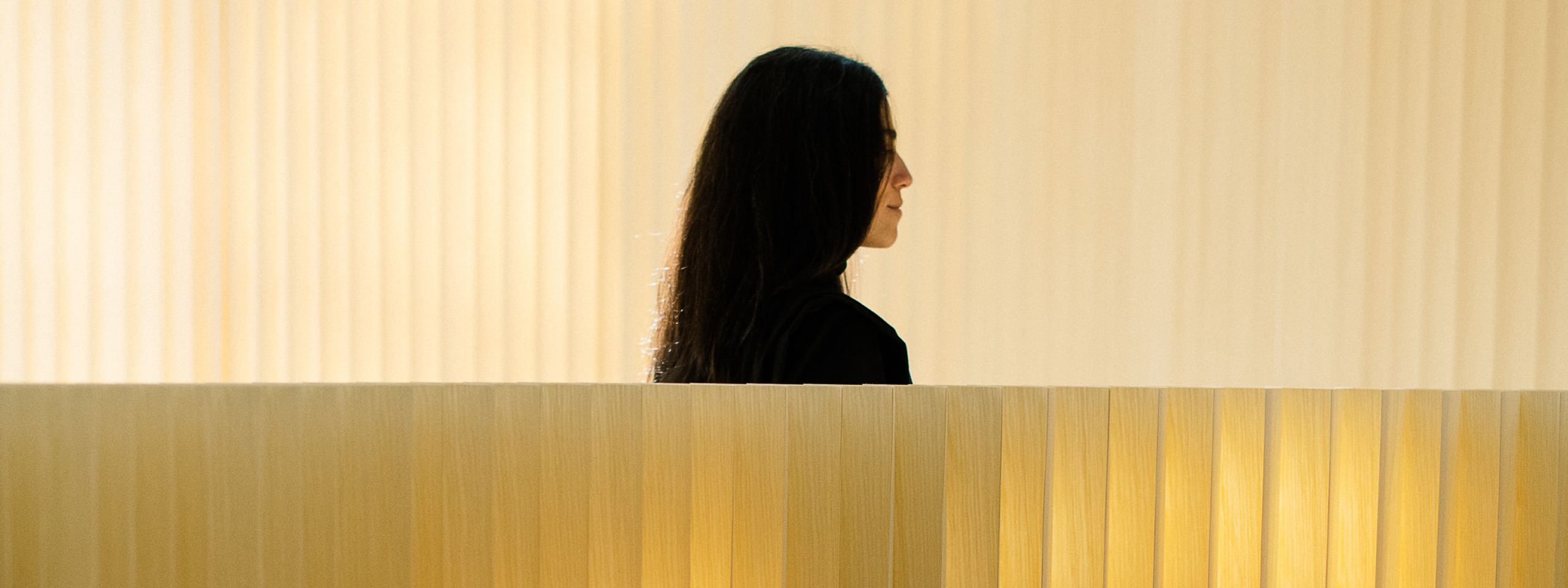
by Stephanie Forsythe and Todd MacAllen
In a digital age, our attention is often siphoned into two-dimensional experiences. As thought inhabits more than one place, it is easy to forget our embodied existence in environments. Passing from rooms, buildings, and seasons, we cross thresholds all the time, introduced to new textures, sounds, scents and shifts in light. These micro-moments mark the passage between one realm and another, but many times, we miss the magic of transitions.
At molo, we consider how to embrace these spatial thresholds. Each aspect of design is an invitation to mirror the fluidity of life, reminding us that space isn’t static. It’s something we move through, shape, and are shaped by.
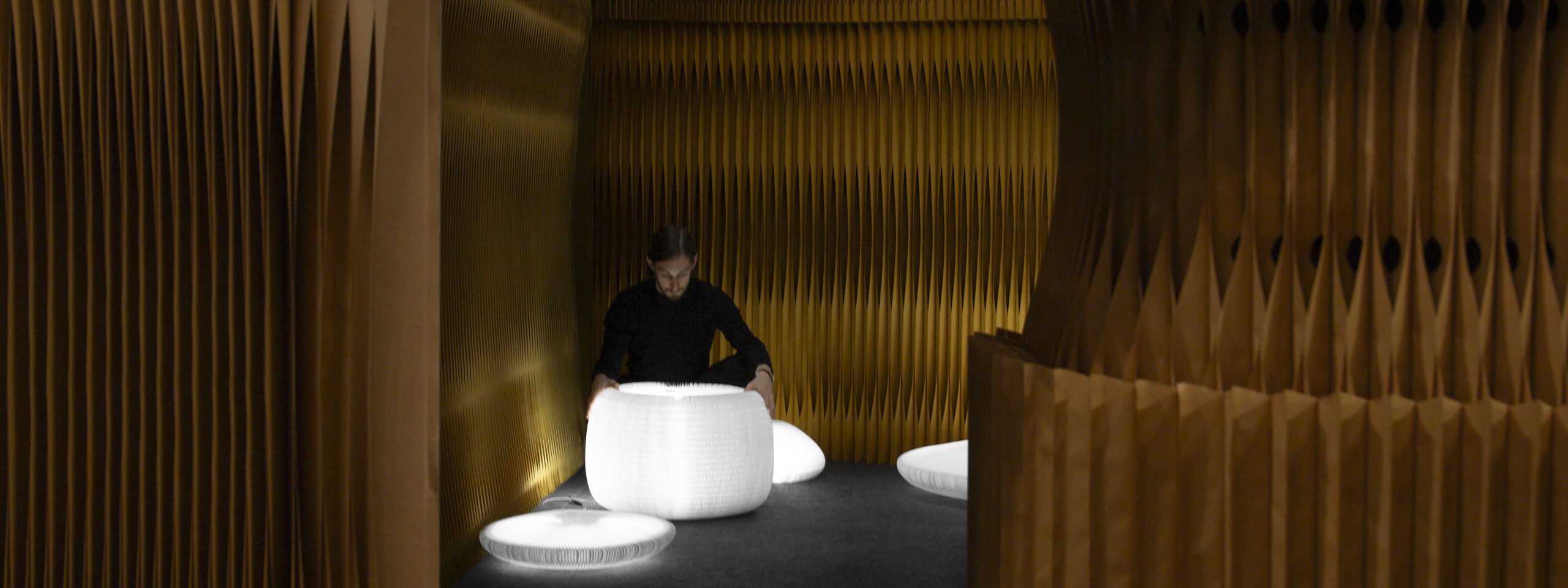
blurring boundaries
Thresholds are spatial, multisensory and temporal design opportunities. Constantly encountered—sometimes by choice, sometimes not—we define thresholds by how we feel when we cross them. How do we respond to a shift in temperature, acoustics or light? Passing through a compressed space focuses attention and heightens the effect of the next space. Transitions have the potential to elevate and engage our senses, bringing awareness to our sense of place. In a compressed space, we often become more aware of our human scale and the tactility of our surroundings. The right amount of contrast allows us to continue paying attention with a delightful response.
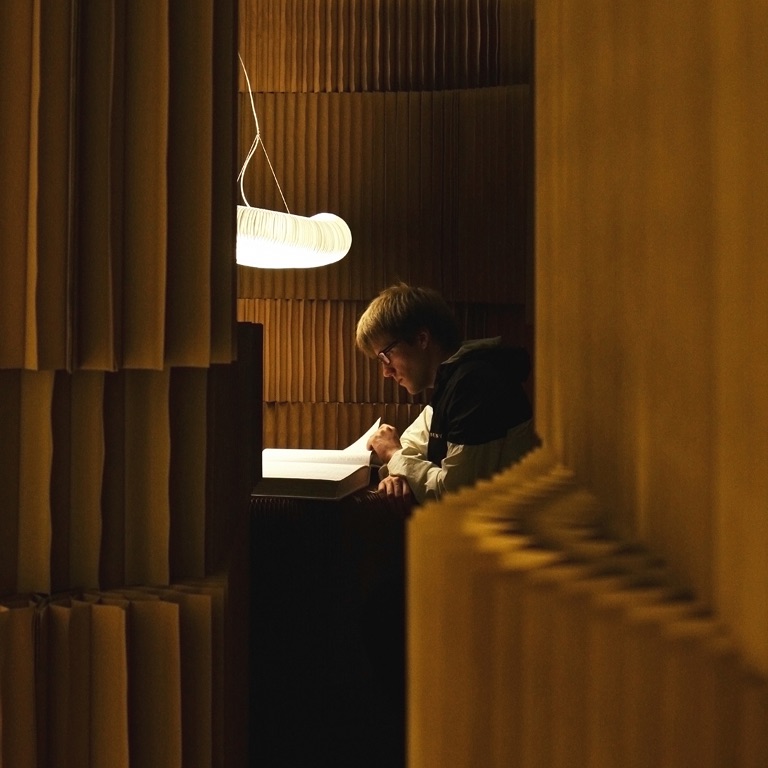
moving through everyday
Thoughtfully designed transitions support the way we move through time and space, guiding us between states: conversation and solitude, work and rest, day and dusk. In daily life, this might mean moving from a social setting to one meant for sleep, or from openness into intimacy.
Have you ever noticed how light, texture, and spatial compression work together to reset your state of mind? We believe it’s important to experiment with these elements to enhance focus, collaboration, or relaxation.
softwall allows for the spontaneous creation and adjustment of spaces and thresholds. Fluid with needs over time, the sound-absorbing freestanding room dividers can be shaped to adjust the acoustics of a space. Its texture absorbs and reflects light in a changing rhythm as you shift it. Choices of colour, opacity or translucency stimulate emotion. You can create a warmer, more intimate, room-in-room within a larger space, then easily sweep away these folding partitions to enlarge the space as needed.
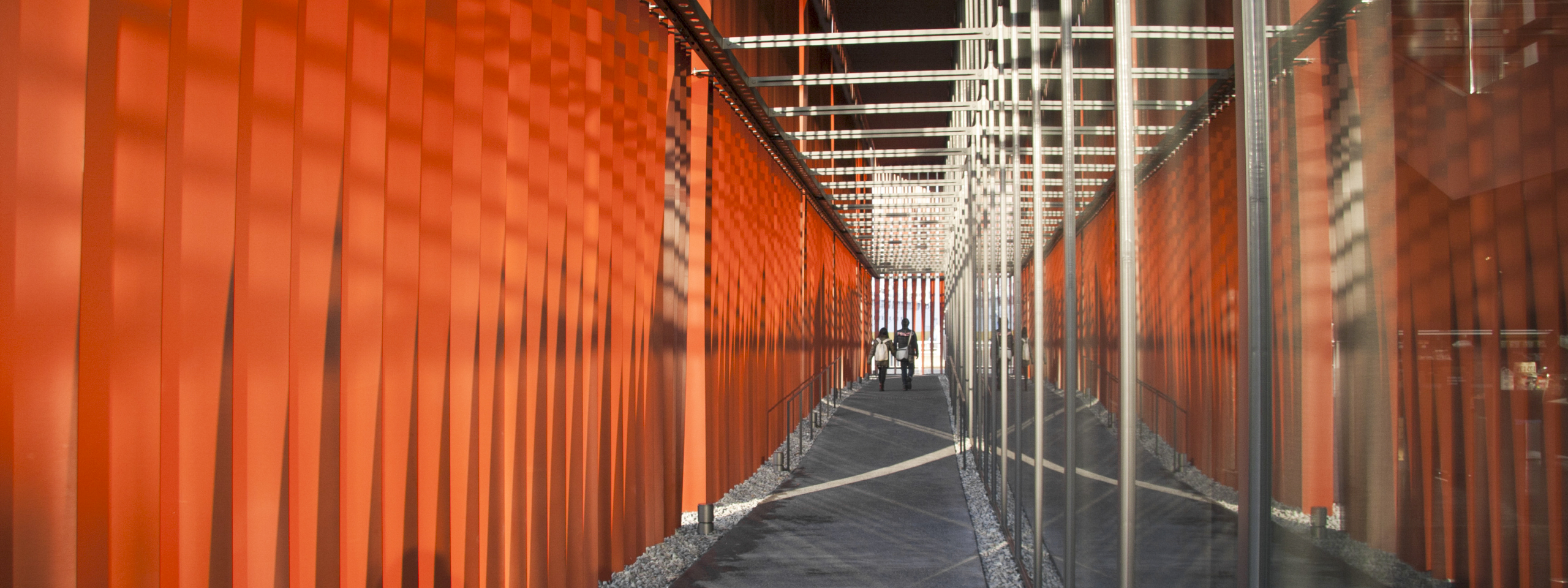
between inside and out
Traditional Japanese architecture is sensitive to transition, with a porosity, and subtle interplay between inside and out, light and shadow, all connected to seasonal change. Inspired by this, we designed the Aomori Nebuta House Museum in Japan to fluidly connect the outside world with a mystical interior.
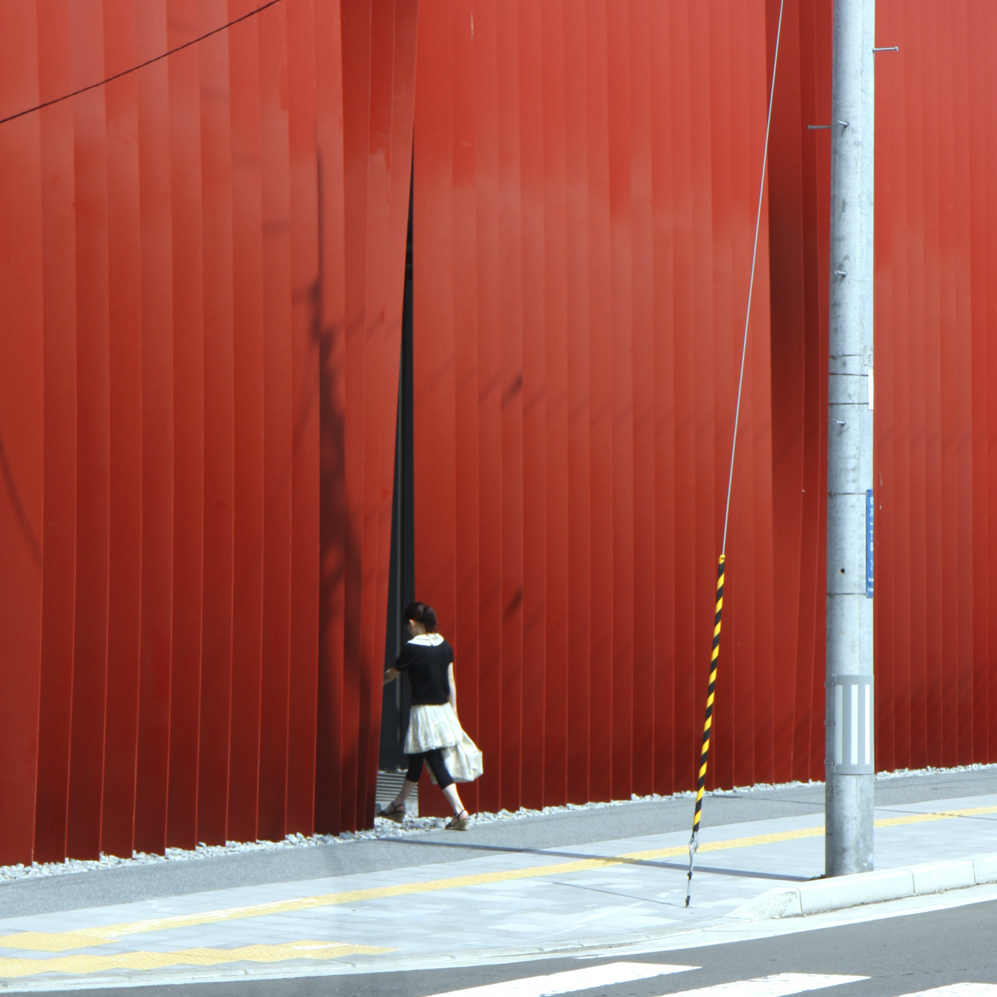
Bold, crimson, twelve-meter-tall steel ribbons define all four sides of the building's perimeter, clearly demarking a threshold between the modern life of Aomori city and a mythical world inhabited by Nebuta—heroes, demons, and fantastical beasts brought to life in the form of enormous paper lanterns to tell stories that have been handed down over centuries. It is a clear, continuous boundary, with no obvious front or back to the building, emphasizing the sense of a floating world within the city. Yet it is porous and layered, people slip between the ribbons into a covered outdoor engowa that encircles the full building and from here they intuitively wind their way inward through a variety of screens and increasingly darker spaces until they are at the heart of the building fully immersed in the floating world illuminated and inhabited by the paper Nebuta.
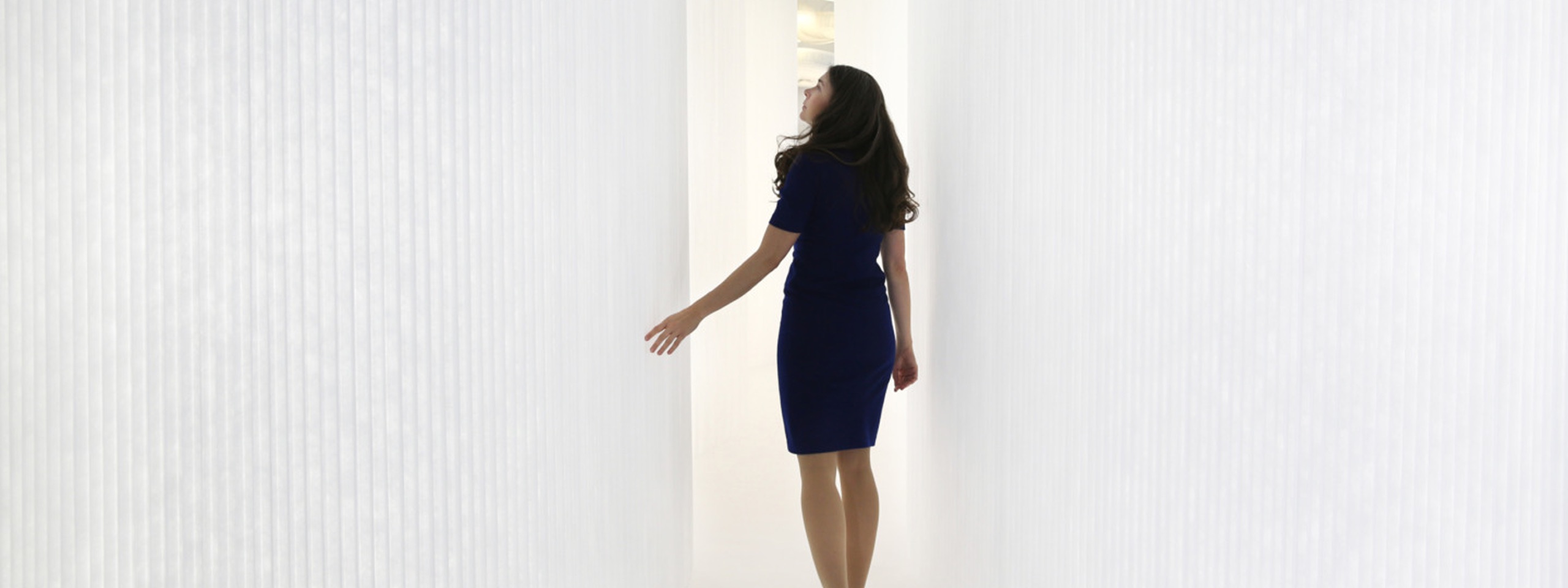
a way of mindfulness
How often do we notice the thresholds we cross, between rooms, seasons or states of mind? In the quiet passages of daily life, we’re offered constant choices to move unconsciously or to step with intention. In a world that aims to distract us, cultivating pockets of stillness and sensory presence is a way to live more beautifully.
To support the goal of living more mindfully, we can make small changes with our awareness. We can design our days, like our spaces. Sometimes, it’s as simple as leaving the phone behind, stepping outside, and letting the world arrive through our senses. Sometimes, it’s adding little details like variations in lighting or movable partitions.
Whatever you choose, we hope you take in the world with your senses and, in doing so, experience the wonder of what we have around us.
